
Sy Fixime 200mg Tablet
Manufacturer
Synapsee Remedies Pvt Ltd
Salt Composition
Cefixime (200mg)
Key Information
Short Description
Sy Fixime 200mg Tablet is an antibiotic used to treat various bacterial infections, including respiratory tract, urinary tract, ear, nasal sinus, throat, and sexually transmitted diseases.
Dosage Form
Tablet
Introduction
Sy Fixime 200mg Tablet should be given under the supervision of a doctor or health professional. Use it regularly at evenly spaced intervals as per the schedule prescribed by your doctor. The dose will depend on what you are being treated for, but you should always complete the full course of this antibiotic as prescribed by your doctor. Do not stop taking it until you have finished, even when you feel better. If you stop taking it early, some bacteria may survive and the infection may come back or worsen.
Directions for Use
Take this medicine in the dose and duration as advised by your doctor. Swallow it as a whole. Do not chew, crush or break it. Sy Fixime 200mg Tablet may be taken with or without food, but it is better to take it at a fixed time.
How it works
Sy Fixime 200mg Tablet is an antibiotic. It kills the bacteria by preventing them from forming the bacterial protective covering (cell wall) which is needed for them to survive.
Quick Tips
Your doctor has prescribed Sy Fixime 200mg Tablet to cure your infection and improve your symptoms. Take it with food to avoid an upset stomach. Do not skip any doses and finish the full course of treatment even if you feel better. Discontinue Sy Fixime 200mg Tablet and inform your doctor immediately if you get a rash, itchy skin, swelling of face and mouth, or have difficulty in breathing.
Related Medicines
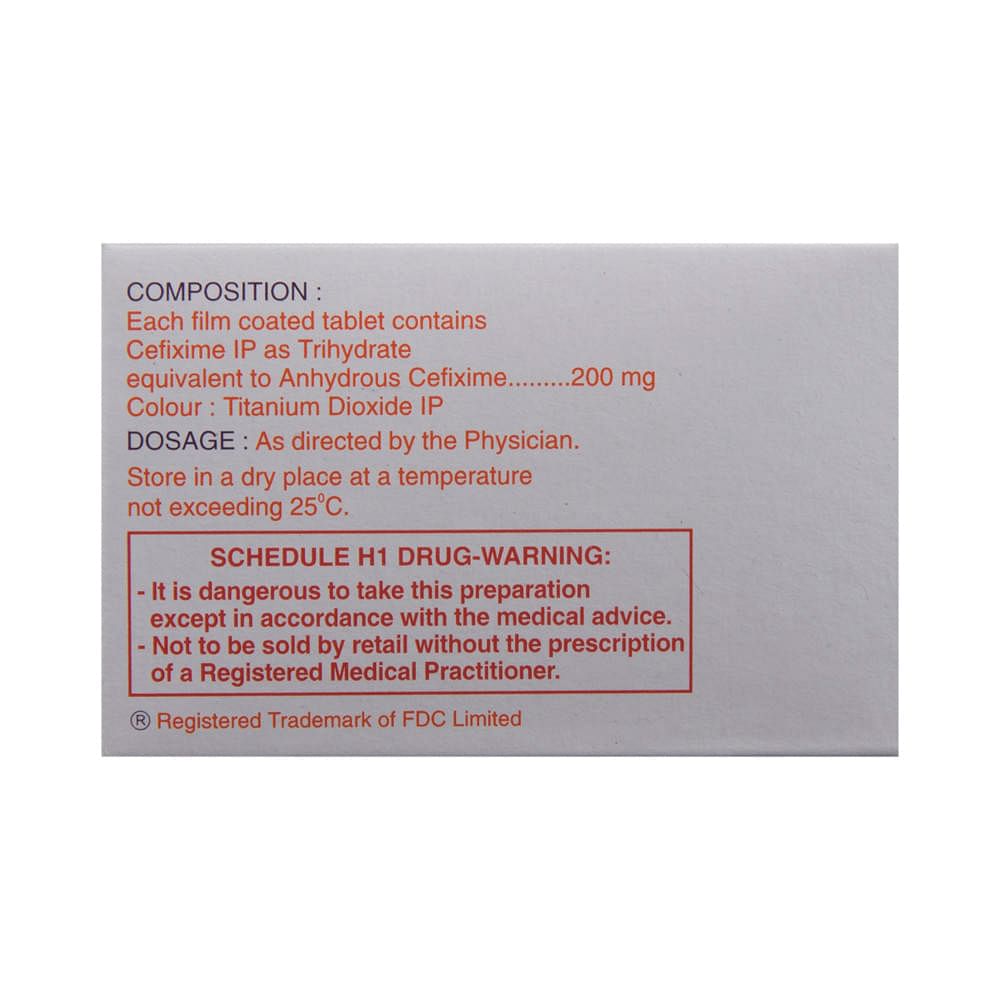
Zifi 200 Tablet

C Tax-O 200 Tablet
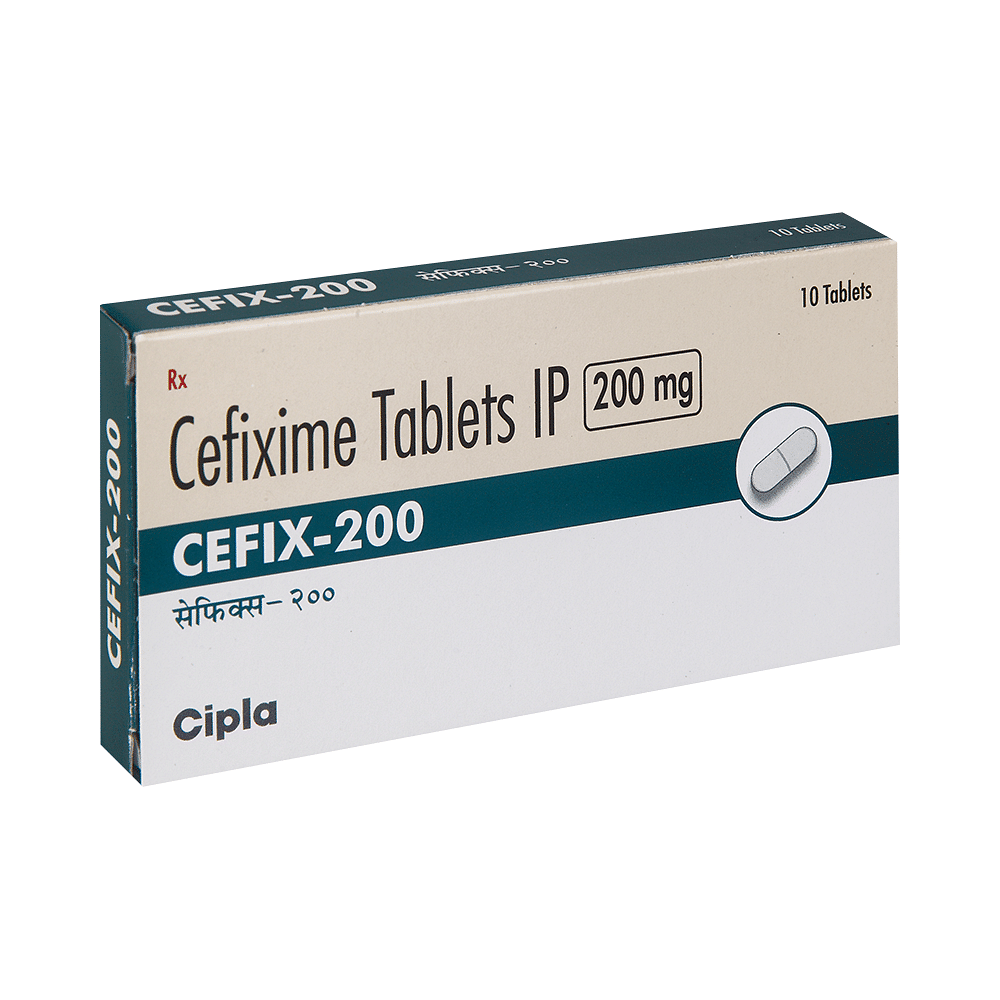
Cefix-200 Tablet
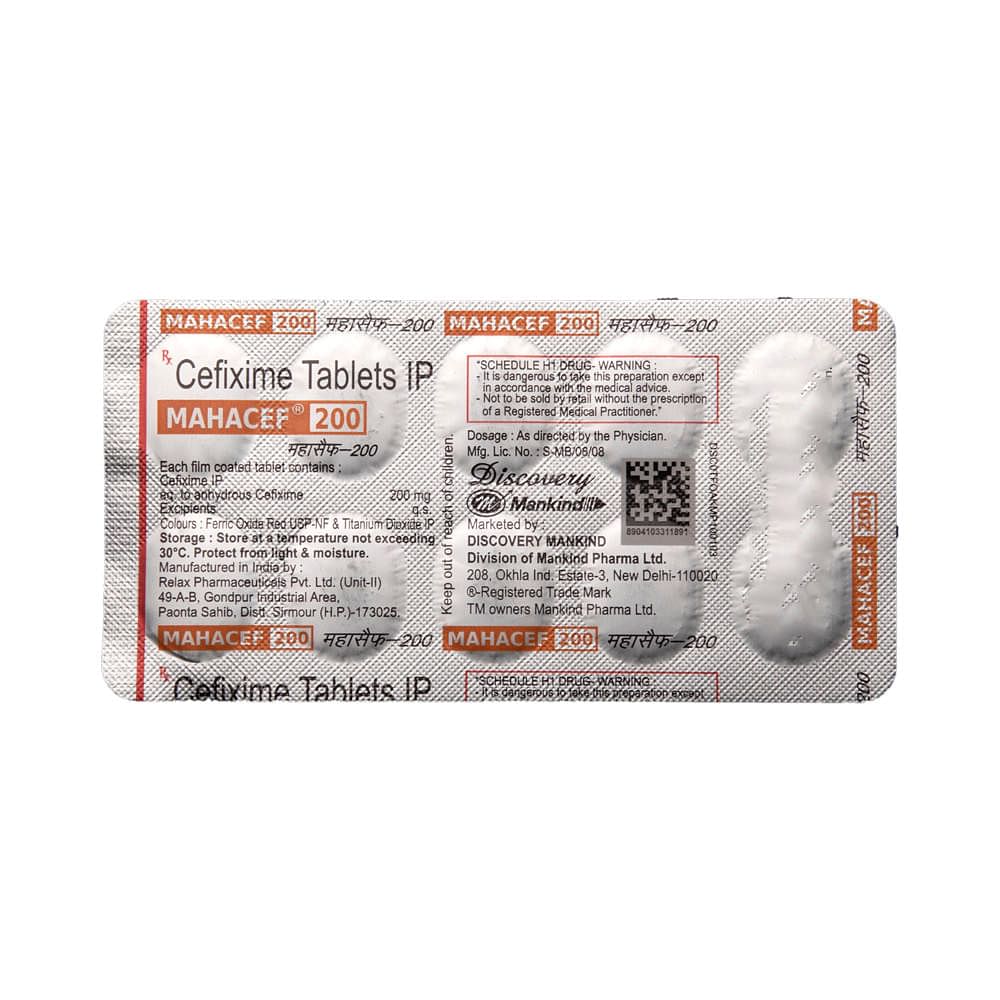
Mahacef 200 Tablet
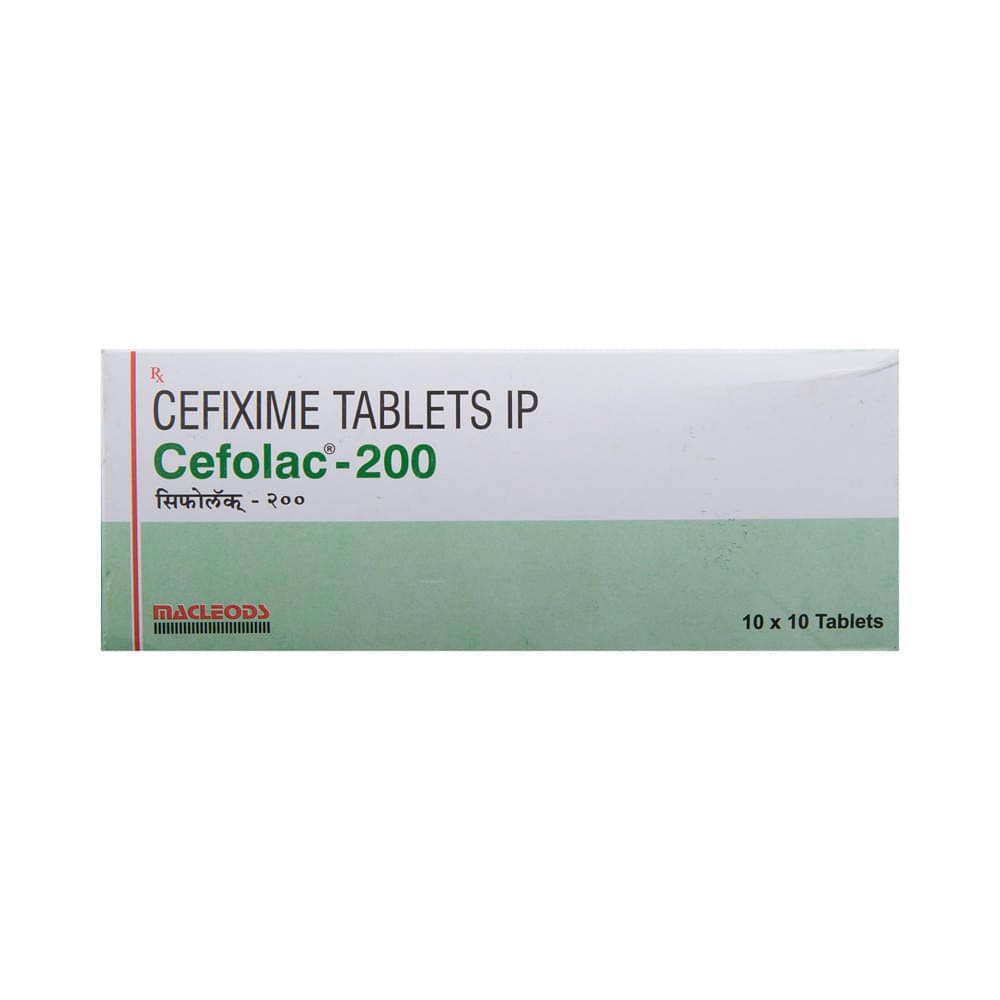
Cefolac 200 Tablet
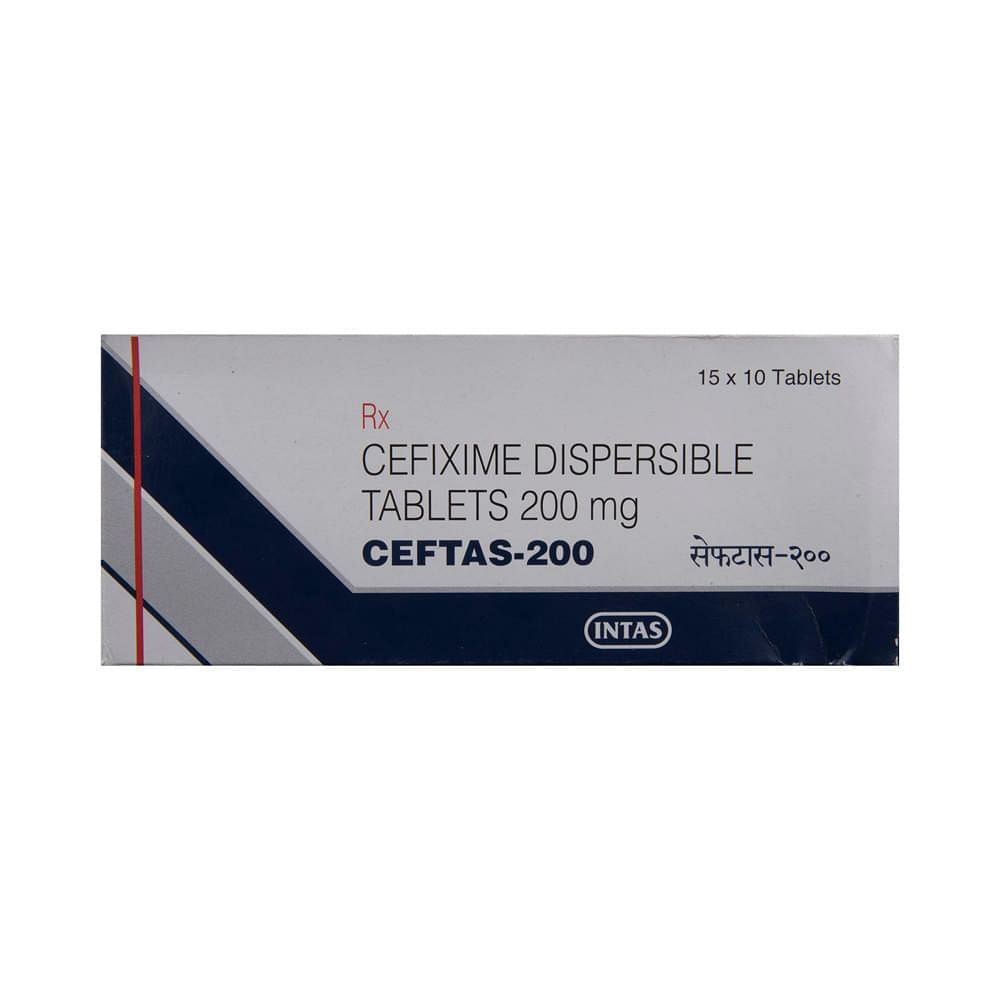
Ceftas 200 Tablet
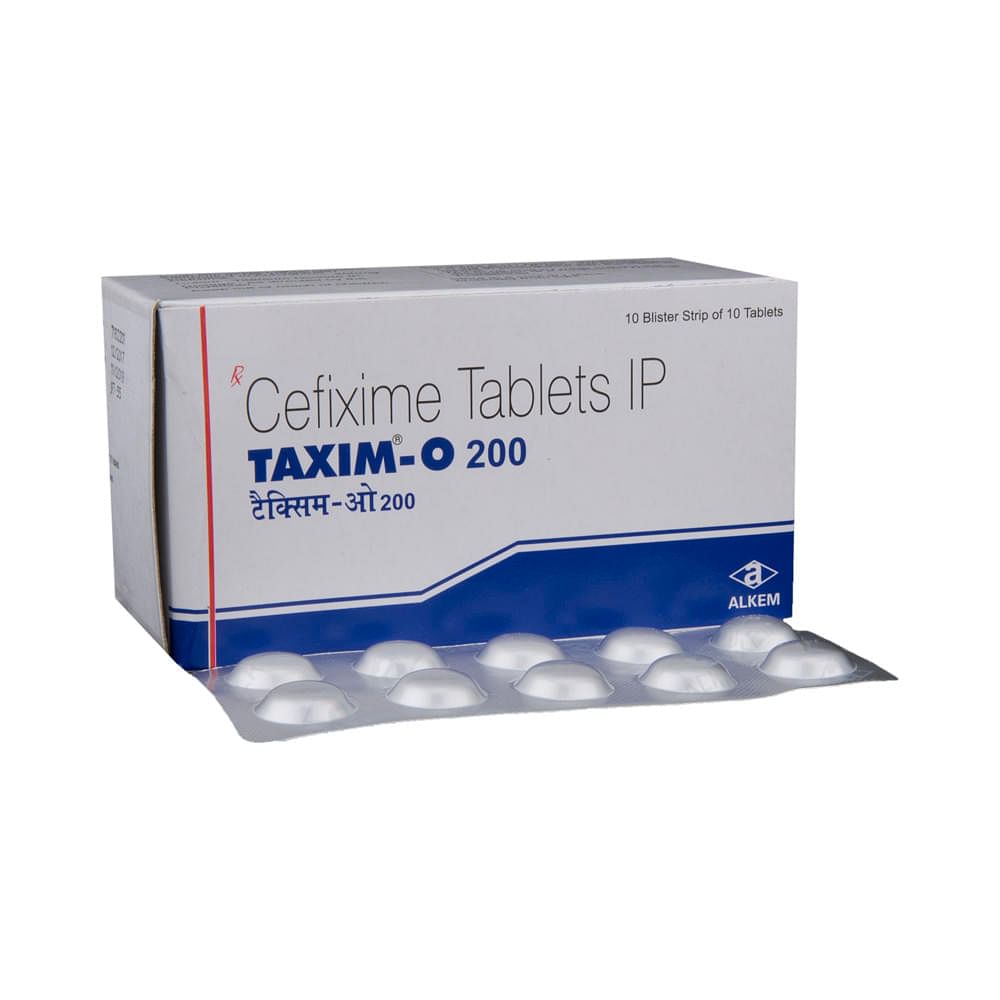
Taxim-O 200 Tablet

Cefimas 200mg Tablet

Amracef 200mg Tablet

Leaf 200mg Tablet
Frequently asked questions
What is the typical duration of treatment with Sy Fixime 200mg Tablet?
Sy Fixime 200mg Tablet is usually prescribed for a period of 7-14 days. It's essential to complete the full course of treatment as advised by your doctor to ensure the medicine is effective.
If I don't feel better after taking Sy Fixime 200mg Tablet, what should I do?
Inform your doctor if you don't experience improvement in your condition even after finishing the full course of treatment. You must also inform your doctor if the symptoms worsen while using this medicine.
Can diarrhea occur as a side effect of taking Sy Fixime 200mg Tablet?
Yes, diarrhea is a possible side effect of taking Sy Fixime 200mg Tablet. This occurs because the antibiotic can affect the helpful bacteria in your stomach or intestine, leading to diarrhea. If diarrhea persists, discuss it with your doctor.
Is Sy Fixime 200mg Tablet effective in treating infections?
Sy Fixime 200mg Tablet is effective when used as directed by your doctor. It's essential not to stop taking the medicine even if you experience improvement in your condition. Stopping treatment too early may lead to symptoms returning or worsening.
What should I do if I forget to take a dose of Sy Fixime 200mg Tablet?
If you miss a dose, take it as soon as you remember. However, if it's almost time for your next scheduled dose, skip the missed dose and continue with your regular dosing schedule. Do not double the dose to make up for the missed one, as this may increase the risk of side effects.
Is Sy Fixime 200mg Tablet safe for people with kidney problems?
Sy Fixime 200mg Tablet is generally safe for the kidneys when taken alone. However, when used in combination with aminoglycosides (gentamicin, tobramycin) or other cephalosporins antibiotics, it may increase the risk of kidney damage. Therefore, it's essential to take this medicine only as directed by your doctor.
How long should I take Sy Fixime 200mg Tablet?
Sy Fixime 200mg Tablet is usually prescribed for a period of 7-14 days. It's crucial to complete the full course of treatment as advised by your doctor to ensure the medicine is effective and to prevent the development of antibiotic-resistant bacteria.


